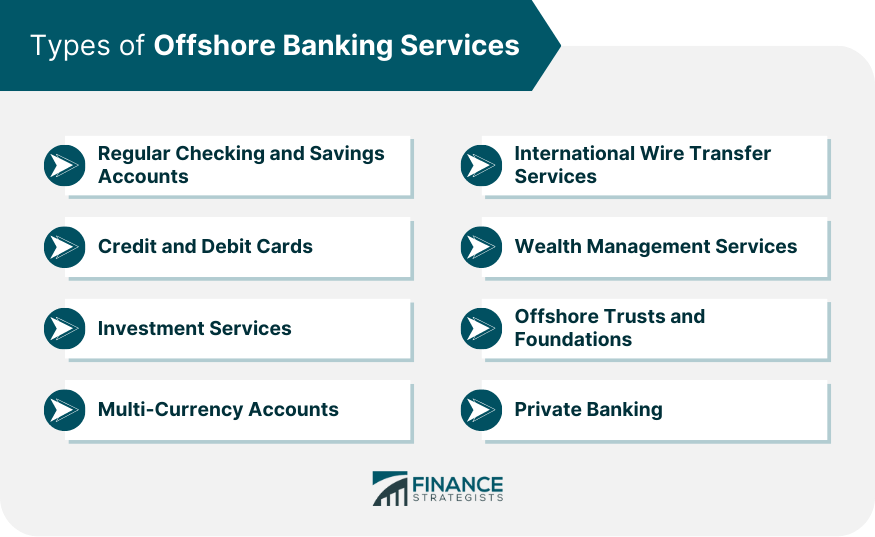Debunking Offshore Firm Formations: Just How They Run and What to Anticipate
Offshore firm formations can appear complicated and enigmatic. Offshore Company Formations. These entities, usually developed for tax obligation advantages and personal privacy, operate under unique lawful frameworks. Business owners might find themselves maneuvering via a maze of policies and compliance demands. Recognizing the ins and outs is essential for success. What are the actual advantages? What are the prospective risks? A closer assessment exposes the nuances that might affect decision-making significantly
Comprehending Offshore Companies: Types and definitions
Offshore business are entities established in a territory beyond an individual's or business's main nation of house, typically for objectives associated with tax optimization, property defense, or regulatory advantages. These companies can take various types, consisting of minimal responsibility firms (LLCs), international service companies (IBCs), and offshore depends on. Each kind offers details functions and appeals to various needs.
Limited liability companies offer owners with protection from personal obligation, while worldwide service firms are prominent for their adaptability and very little reporting demands. Offshore trusts, on the other hand, are made use of largely for estate preparation and possession defense.
The option of jurisdiction substantially influences the firm's operations, as some places supply much more desirable legal structures and privacy securities. Offshore Company Formations. Recognizing the distinctions between these kinds is important for companies and people thinking about overseas frameworks, as each option carries various implications for administration and conformity
The Benefits of Developing an Offshore Business
Establishing an overseas business can supply countless benefits, especially for those looking for to enhance their monetary techniques and secure their assets. One considerable benefit is tax optimization; numerous territories use desirable tax obligation rates or exemptions, allowing companies to maintain more revenues. Furthermore, offshore companies can offer a layer of privacy, protecting the identifications of proprietors and investors from public examination.
One more benefit is possession defense. By putting properties in an offshore entity, people can safeguard their wide range from possible lawful insurance claims or political instability in their home countries. This framework additionally promotes international service operations, allowing simpler access to worldwide markets and diverse clientele.
Furthermore, the establishment of an overseas company can improve reputation and prestige, appealing to customers that value international business techniques. Generally, these advantages make overseas firm formations an eye-catching alternative for services and people intending for monetary development and safety and security.
Trick Factors To Consider Before Developing an Offshore Entity
Before creating an offshore entity, numerous critical elements should be assessed. Legal conformity demands, tax obligation implications and advantages, along with territory selection, play a significant role in the decision-making process. Understanding these considerations can assist people and companies navigate the intricacies of overseas business formations successfully.

Lawful Conformity Requirements
When considering the development of an offshore entity, understanding legal conformity demands is important to ensure adherence to both neighborhood and international legislations. Potential company proprietors need to familiarize themselves with laws controling company enrollment, reporting obligations, and functional criteria in the picked territory. This consists of verifying the lawful demands for directors and investors, as well as making certain compliance with anti-money laundering (AML) and know-your-customer (KYC) laws. Additionally, services ought to remain knowledgeable about any licensing needs particular to their market. Engaging regional legal and economists can provide important understandings, making certain that all required paperwork is prepared and sent correctly. Eventually, detailed expertise of legal compliance assists mitigate dangers and cultivates a lasting overseas procedure.
Tax Implications and Benefits
Many entrepreneur think about the tax obligation effects and advantages of forming an offshore entity as a vital consider their decision-making process. Offshore business can provide significant tax obligation advantages, such as reduced company tax obligation rates, exception from specific local tax obligations, and the ability to defer tax obligations on foreign income. These advantages can result in enhanced productivity and capital, making offshore frameworks appealing for worldwide business procedures. Furthermore, the capacity for tax obligation treaties may even more reduce tax liabilities. It is important for company owners to comprehend the complexities involved, including compliance with both local and global tax policies. Engaging with tax experts is suggested to navigate these details efficiently and ensure perfect tax obligation preparation strategies.
Jurisdiction Option Aspects
What elements should one consider when choosing a jurisdiction for overseas company development? Secret factors to consider include tax obligation effectiveness, regulative setting, and political stability. Territories with positive tax obligation routines can significantly affect productivity. The regulatory landscape should provide versatility and convenience of compliance, enabling for effective organization operations. Political stability is crucial, as it guarantees the security of possessions and connection of procedures. Furthermore, the reputation of the territory can influence customer trust fund and organization partnerships. Access to financial solutions and the availability of expert assistance services are likewise crucial. Understanding local regulations concerning personal privacy, coverage, and possession needs is crucial to identify that the offshore entity lines up with the organization owner's objectives and lawful responsibilities.
The Process of Establishing Up an Offshore Business
Setting up an overseas firm includes a series of tactical actions that need cautious planning and conformity with global laws. Originally, a private should select an ideal territory that lines up with their business purposes and supplies positive tax benefits. Complying with jurisdiction option, the next action is to select a special company name and prepare the essential documentation, including short articles of incorporation and investor contracts.
When the documents is ready, it needs to be sent to the appropriate authorities in addition to the needed costs. After approval, the business will certainly get a certification of incorporation, formally developing its legal presence. The specific must after that open a company bank account to help with financial deals.
Lastly, preserving an overseas business includes sticking to recurring compliance needs, such as yearly reporting and tax responsibilities, which differ by territory. Comprehending each step is necessary for an effective overseas firm formation.

Governing and legal Framework for Offshore Business
While establishing an offshore business can use substantial advantages, it is necessary to navigate via the complex lawful and regulative framework that regulates such entities. Each jurisdiction has its very own set of regulations that dictate whatever from company formation to taxes and conformity demands. These policies are designed to prevent prohibited activities, such as cash laundering and tax evasion, and often need comprehensive documentation and openness.
Key components of this structure include the need of assigning regional directors, keeping an authorized office, and adhering to annual coverage obligations. Additionally, several jurisdictions impose specific licensing needs for specific business activities. Understanding these lawful stipulations is critical for making certain compliance and mitigating risks related to fines or lawful disputes. Involving with legal specialists who specialize in offshore firms can aid in maneuvering with this elaborate landscape, eventually promoting a certified and effective offshore organization operation.
Usual Misconceptions About Offshore Business
Several people hold false impressions concerning offshore business, usually equating them with tax evasion and unlawful activities. However, it is crucial to identify that these entities can operate legitimately within a structure designed for genuine organization practices. Clearing up the legal status of overseas business can assist resolve these misconceptions and promote a more accurate understanding of their purpose.
Tax Evasion Myths
Regardless of the expanding appeal of offshore firms, misconceptions concerning their usage for tax evasion continue. Numerous individuals erroneously believe that establishing an overseas entity is only a method to prevent taxes. Nevertheless, offshore companies are often utilized for reputable functions, such as possession protection, international organization development, and investment diversification. The perception that all offshore check my blog activities equate to illegal tax obligation evasion overlooks the intricacies of global tax obligation guidelines and compliance needs. Furthermore, the vast bulk of overseas jurisdictions have actually carried out steps to battle tax evasion, advertising transparency and information exchange. This mischaracterization can hinder legitimate services and investors from discovering the prospective benefits of offshore firm formations while continuing an adverse stigma surrounding these entities.
Legal Standing Clarified
The legal condition of overseas companies is often misconstrued, leading to a selection of false impressions. Numerous think these entities operate in a legal grey area, thinking they are inherently unlawful or dishonest. Actually, offshore business are legit organizations created under the regulations of details territories, made for different factors, including possession security and market expansion. Another common false impression is that offshore companies avert taxes completely; nevertheless, they undergo the laws and tax obligation commitments of their home countries. In addition, some individuals think that offshore companies can be easily manipulated for money laundering or illegal activities. While misuse can occur, most jurisdictions enforce strict compliance and transparency laws to mitigate such threats, ensuring that offshore firms operate within legal structures.

Managing and Operating Your Offshore Company Effectively
Efficiently taking care of and running an offshore business requires a strategic strategy that stabilizes compliance with neighborhood guidelines and the quest of business goals. Successful offshore management includes understanding the jurisdiction's tax obligation laws, reporting demands, and functional laws. Utilizing regional specialists, such as accountants and legal advisors, can offer very useful insights into traversing these intricacies.
Additionally, establishing clear communication channels and operational methods is vital for keeping performance. Making use of modern technology for task monitoring and cooperation can enhance productivity, while regular performance reviews guarantee placement with strategic objectives.
Furthermore, maintaining durable monetary records is important, as transparency promotes depend on with stakeholders and adhere to international criteria. Lastly, being adaptable to changes in regulation or market problems permits offshore companies to pivot properly, ensuring long-term sustainability and development. By sticking to these principles, entrepreneur can take full advantage of the benefits of their overseas ventures while mitigating threats.
Frequently Asked Inquiries
Just how much Does It Expense to Maintain an Offshore Business Annually?
The price to maintain an overseas company yearly varies considerably, usually varying from $1,000 to $5,000, relying on territory, solutions called for, and conformity responsibilities. It is necessary to think about added fees for certain demands.
Can I Open a Checking Account for My Offshore Business From Another Location?
Opening up a savings account for an offshore business remotely is usually possible. Needs may differ by jurisdiction, commonly necessitating documentation and confirmation procedures, which can make complex the remote application experience for people.
Exist Certain Nations Recognized for Easier Offshore Firm Formations?
Specific countries, useful link such as Belize, Seychelles, and the British Virgin Islands, are renowned for their favorable laws and structured procedures concerning offshore firm developments, drawing in entrepreneurs seeking efficiency and discretion in company operations.
What Kinds of Organizations Are Finest Suited for Offshore Companies?
Particular services, such as e-commerce, financial investment, and consultancy firms, usually gain from offshore companies as a result of tax benefits, privacy, and regulatory versatility - Offshore Company Formations. These entities generally grow in territories that advertise positive company settings
Exactly How Can I Make Certain Compliance With Neighborhood Laws When Running Offshore?
To guarantee conformity with regional regulations when operating offshore, it is important to engage lawful experts, carry out comprehensive research on territory guidelines, and keep transparent economic records, thus minimizing dangers associated with non-compliance.
